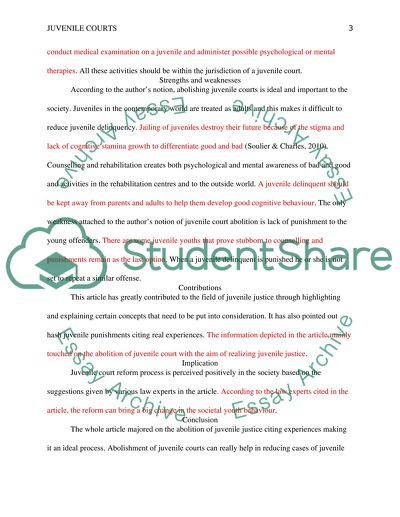Juvenile Courts Coursework Example | Topics and Well Written Essays - 500 words - 1. Retrieved from https://studentshare.org/law/1658061-juvenile-courts
Juvenile Courts Coursework Example | Topics and Well Written Essays - 500 Words - 1. https://studentshare.org/law/1658061-juvenile-courts.


